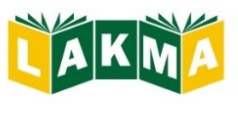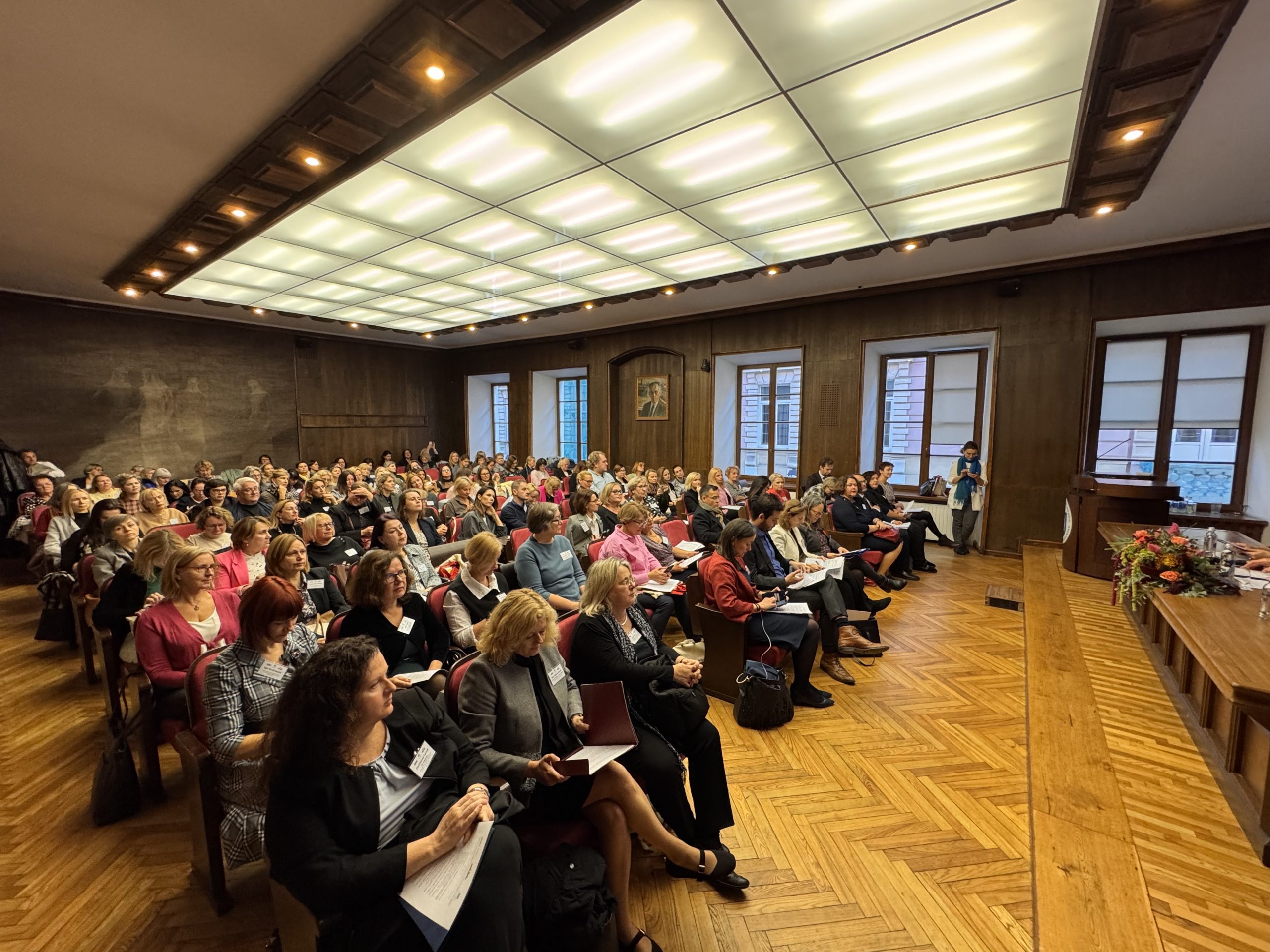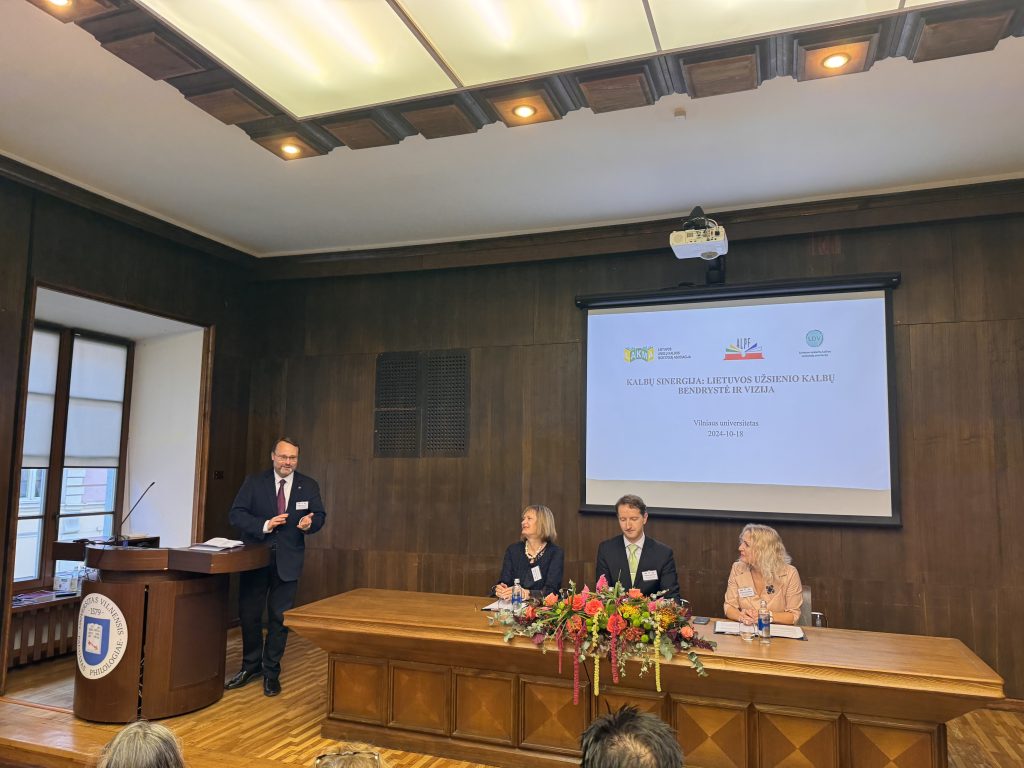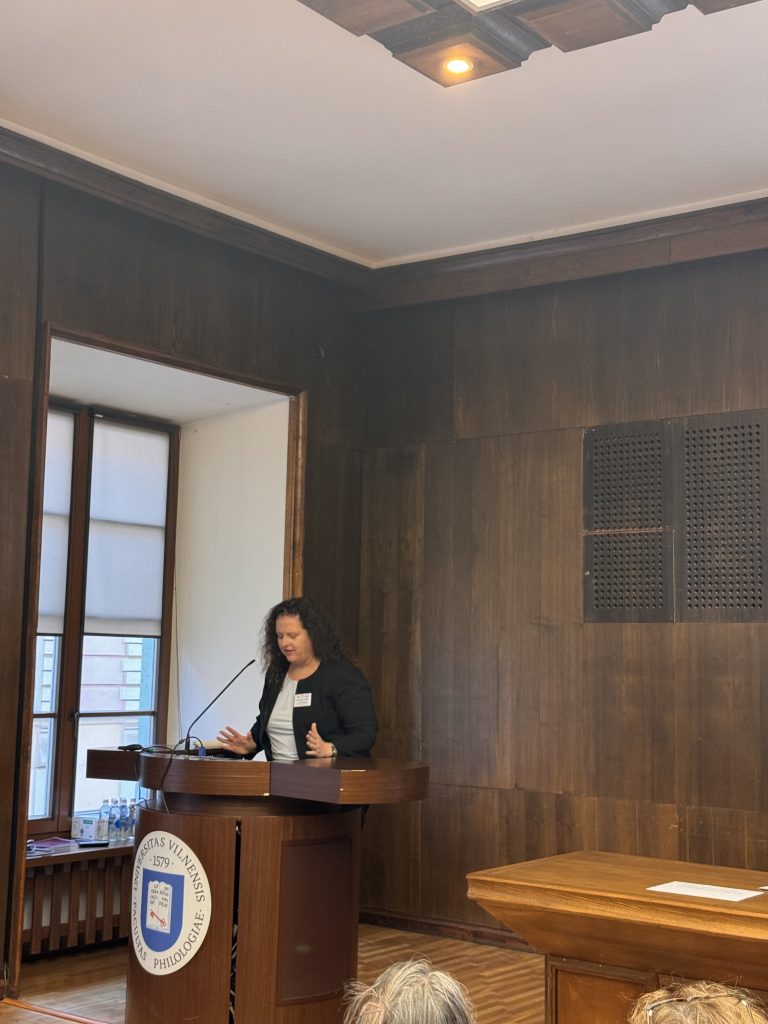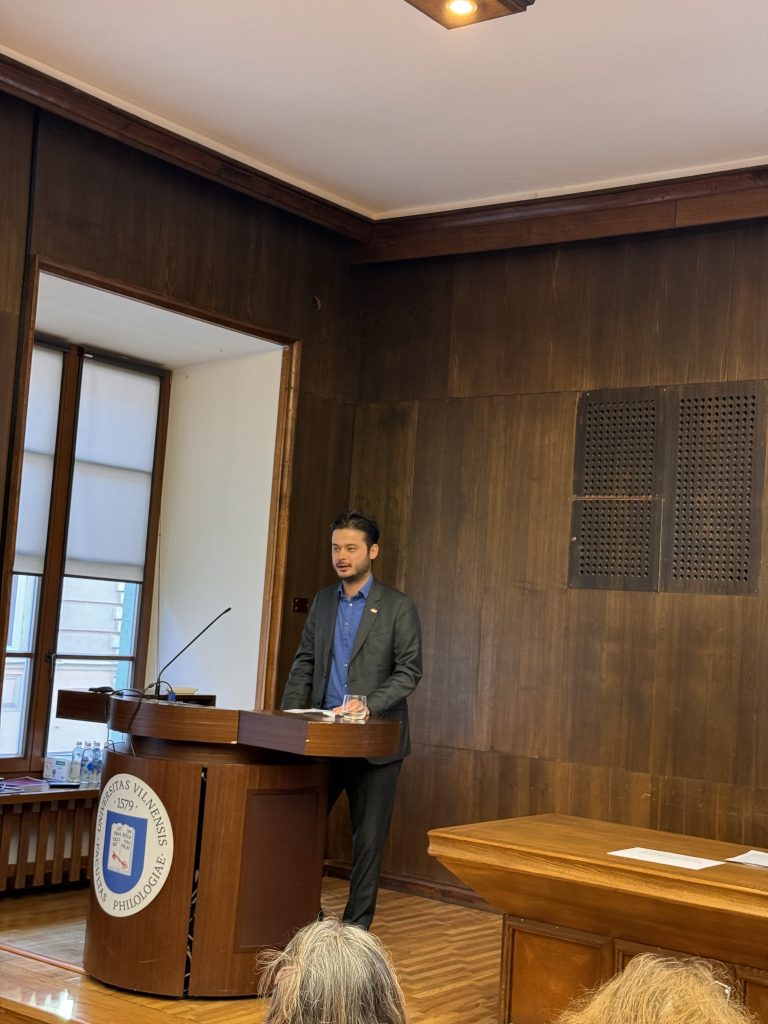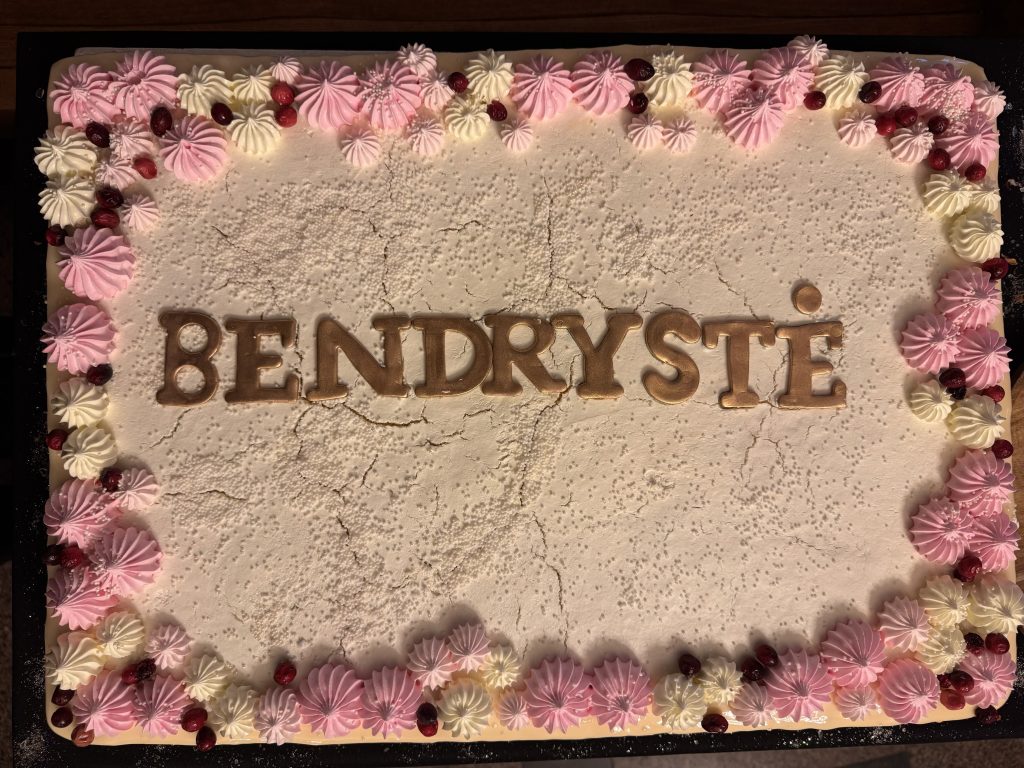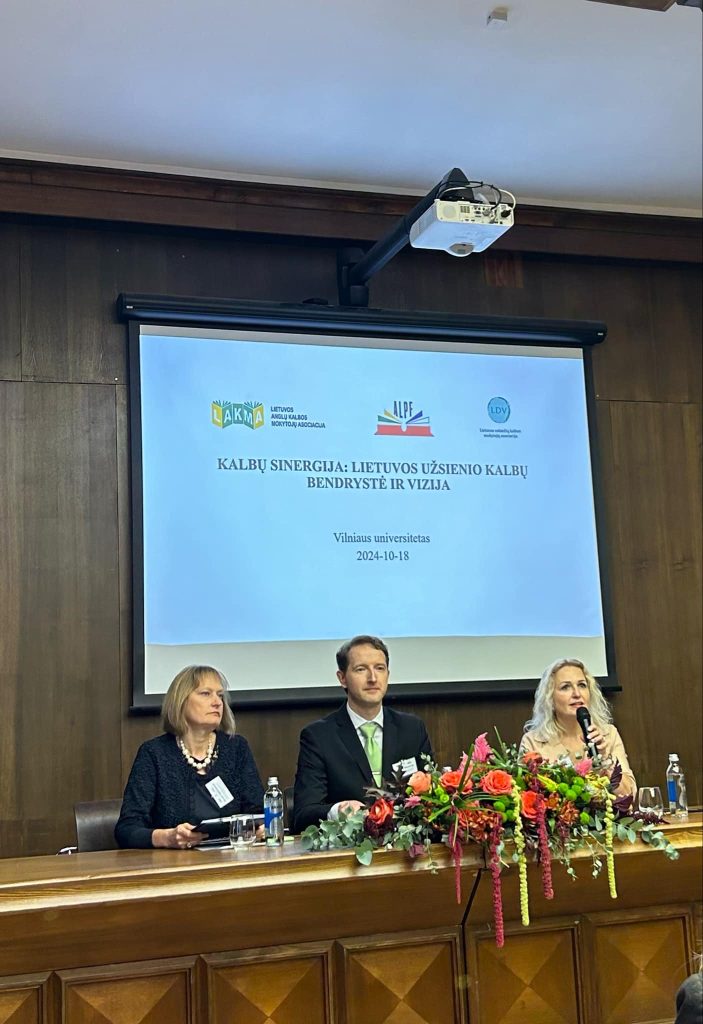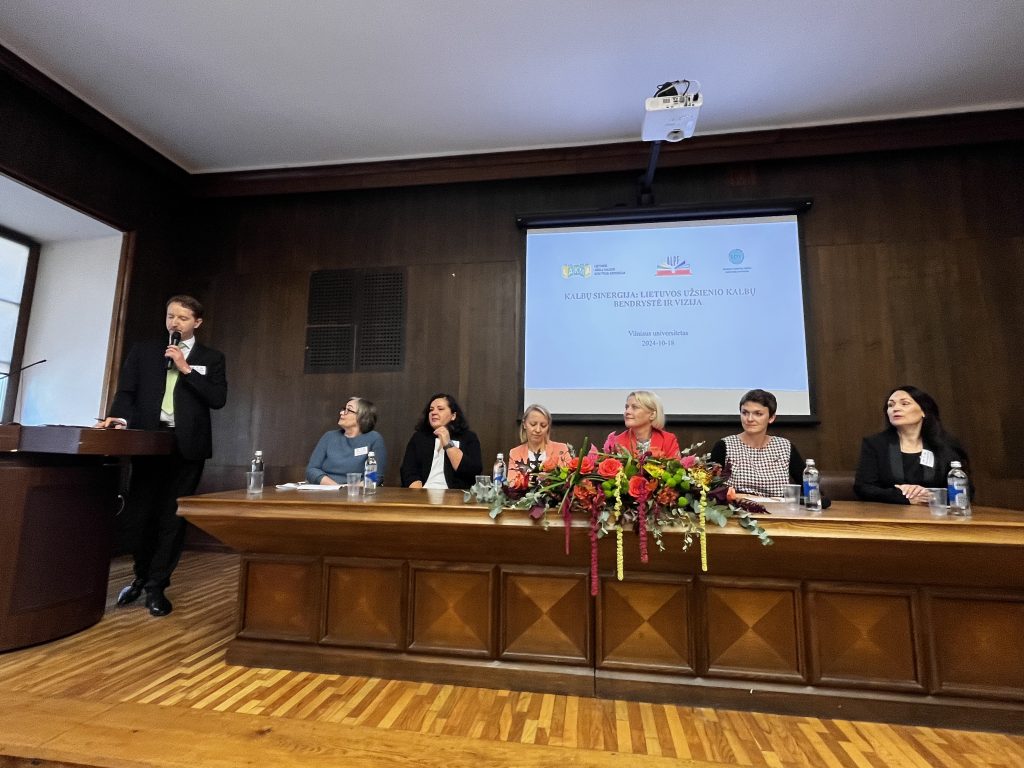On 18 October, 2024 Vilnius University Faculty of Philology hosted a joint conference of Lithuanian foreign language teachers’ associations “Synergy of Languages: community and vision of foreign languages in Lithuania”. This event brought together the Lithuanian English (LAKMA), French (ALPF) and German (LDV) Language Teachers’ Associations, together with the Lithuanian Language Pedagogues’ Association (LKPA), and provided a unique forum for exploring issues related to language teaching and learning in Lithuania.
The conference brought together more than 200 foreign language professionals – teachers, lecturers, researchers and education policy makers – to discuss the current state of foreign language education in Lithuania, to voice challenges and to make joint proposals for a future vision. The event was supported and attended by representatives of the Embassies of the United Kingdom, the United States of America, France, Canada, Germany, Switzerland, representatives of the Ministry of Education, Science and Sport of the Republic of Lithuania, the Ministry of National Defence of the Republic of Lithuania, representatives of the European Commission, experts from the National Education Agency and representatives of language institutes.
Key highlights
The conference started with a focus on the importance of foreign language teaching in a multilingual Europe. Speakers highlighted the limited opportunities for students to learn a second foreign language in Lithuania. This situation is contrary to the EU’s multilingualism policy, which seeks to provide opportunities for young people to learn at least two foreign languages. An important part of the conference was devoted to working groups which discussed in detail strategies and made proposals for strengthening the learning of a second foreign language. The working groups came to the following conclusions and proposals:
- Structural changes in curricula:
- Increase the number of lessons in Foreign Language II from Grade 5 to Grade 12, with at least three lessons per week.
- Ensure consistency – the option of learning a second language should be maintained in the upper grades without allowing students to drop out.
- Motivation and awareness-raising for pupils:
- Integrate career education into language teaching, emphasizing the benefits of multilingualism in the labour market.
- Encourage participation in international projects such as Erasmus+ and organise meetings between pupils and representatives of foreign companies.
- Professional development for language teachers:
- Expand opportunities for professional development for teachers of a second foreign language, in particular in the areas of integrated teaching methodologies and the creation of a multilingual environment.
- Highlighting the importance of multilingualism at national level:
- Emphasise the importance of multilingualism in the national context as a strategic priority contributing to national competitiveness and attracting investment.
- Ensure equal access to language learning in the regions and strengthen mechanisms to attract teachers to remote areas.
- Increasing the flexibility of the education system:
- Revise the structure of compulsory subjects to include more hours of foreign language teaching.
- Encourage schools to develop specialised programmes that allow deeper learning of specific languages.
- Involving parents and the community:
- Strengthen dialogue with the parental community by regularly informing them about the benefits of multilingualism and by working together to address language learning challenges.
Importance of the Memorandum
The conference culminated in proposals to incorporate the above-mentioned decisions into a Memorandum on the future of foreign language education in Lithuania. This document is planned to be submitted to the Ministry of Education, Science and Sport, other public authorities and presented to the general public as a long-term strategy to ensure multilingualism.
Future prospects
The Language Synergy Conference not only brought together foreign language professionals, but also showed that multilingualism in Lithuania can be a realistic and sustainable goal. Strengthening cooperation between schools, universities and education policy makers and institutions such as language institutes and embassies is essential to realise the ideas expressed at the conference.
The Lithuanian Association of Teachers of English (LAKMA), together with other foreign language teachers’ associations, will continue to work to make language teaching in Lithuania not only a priority, but also an example for other countries.
Kristina Urbonienė
LAKMA President
